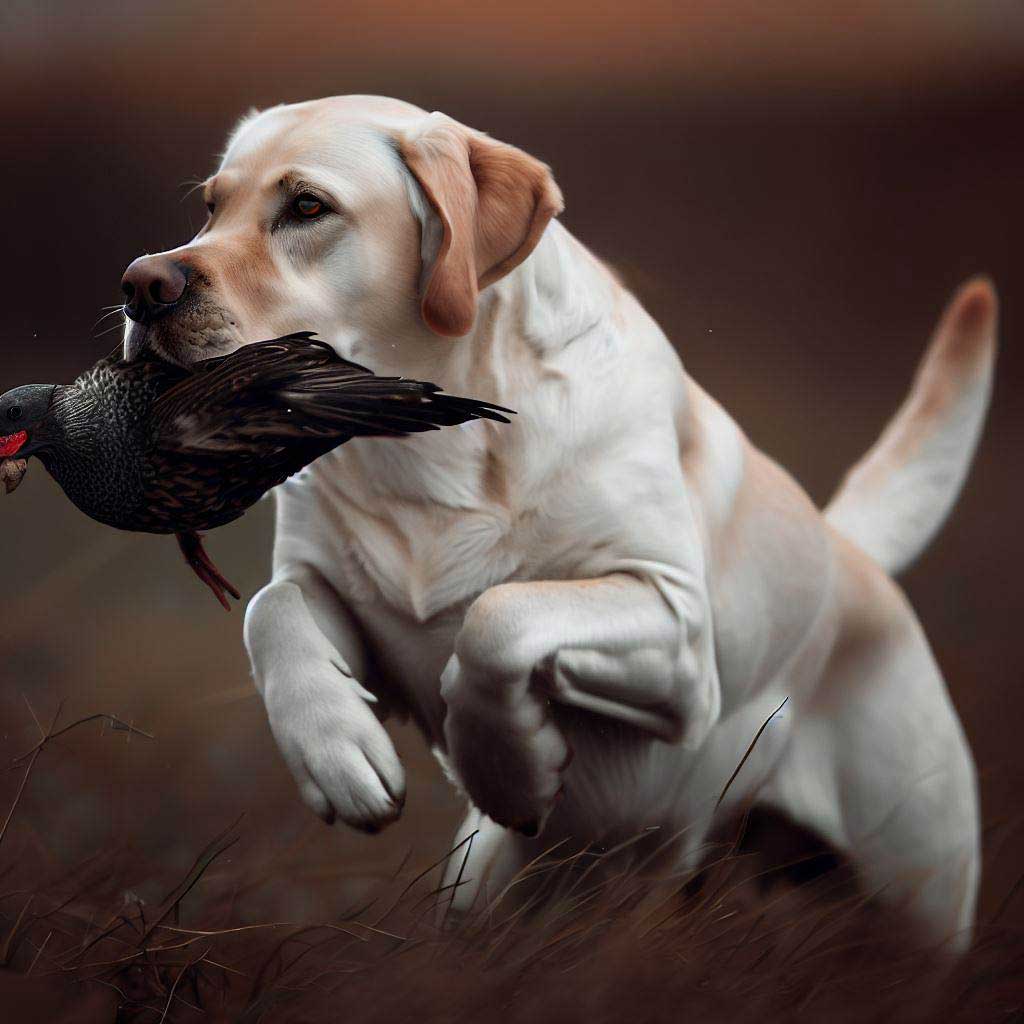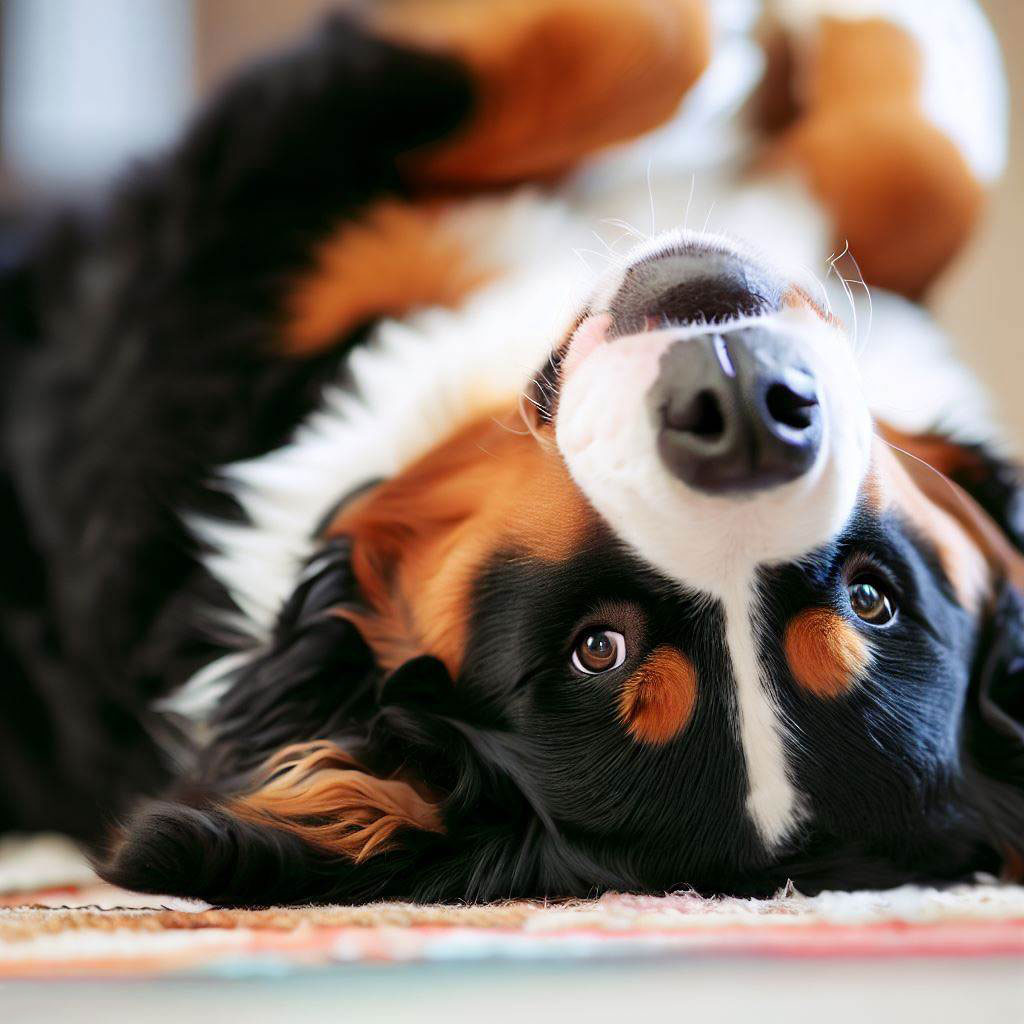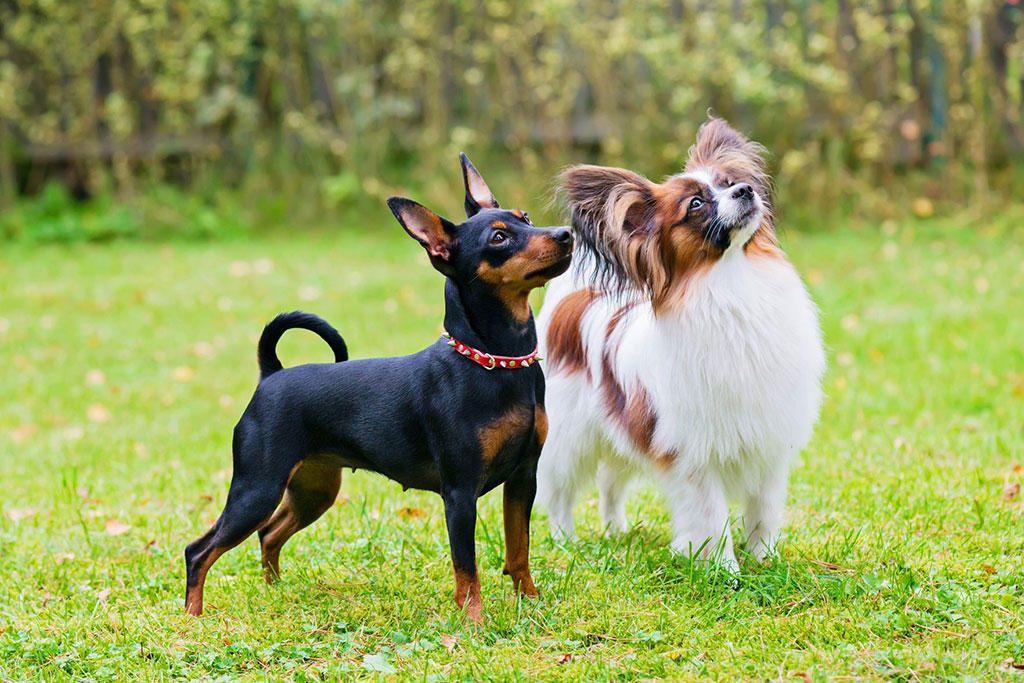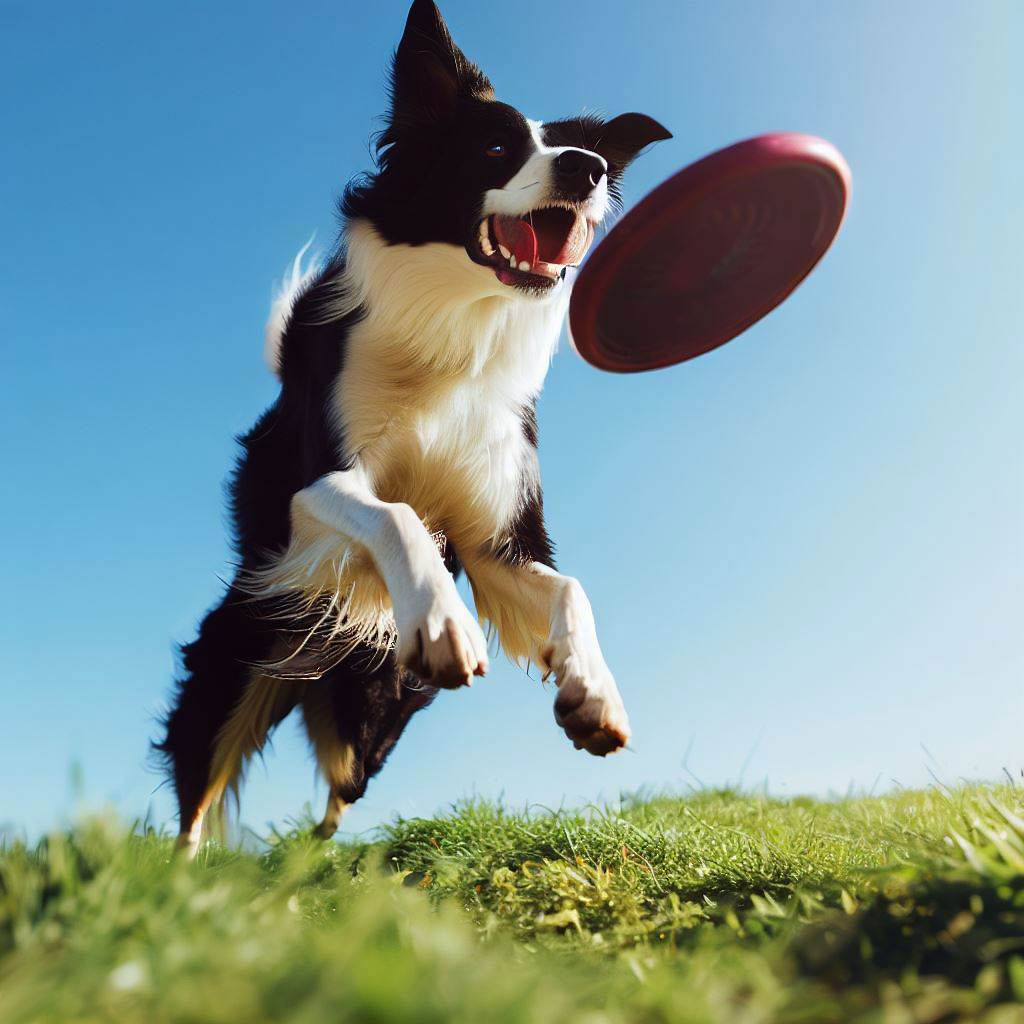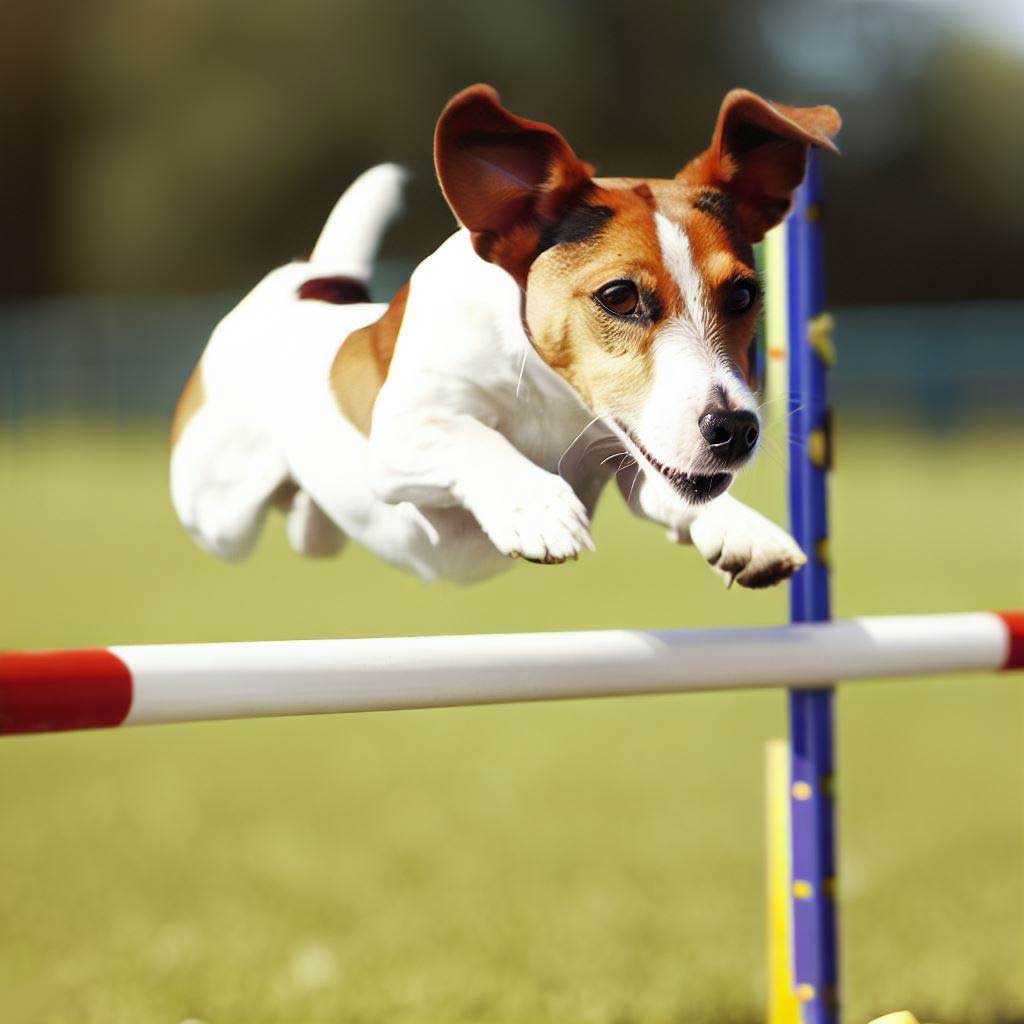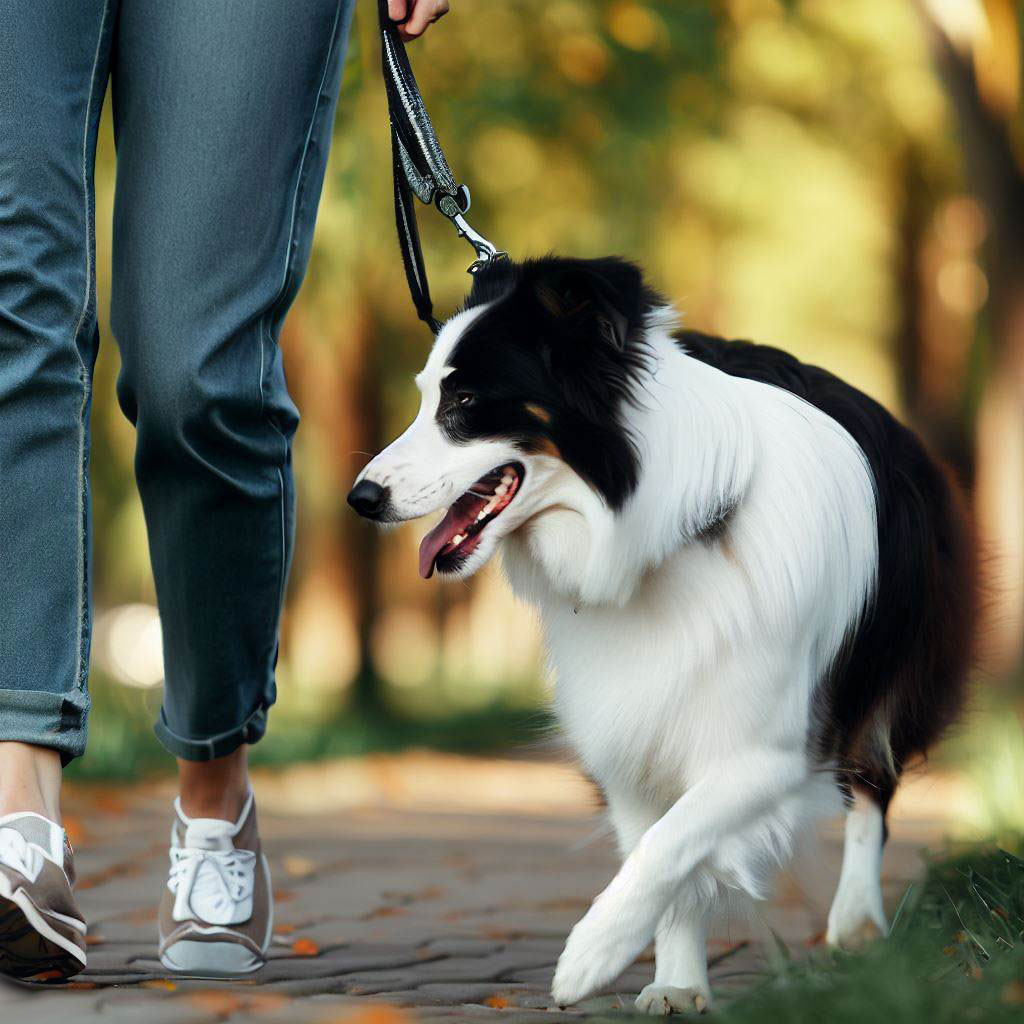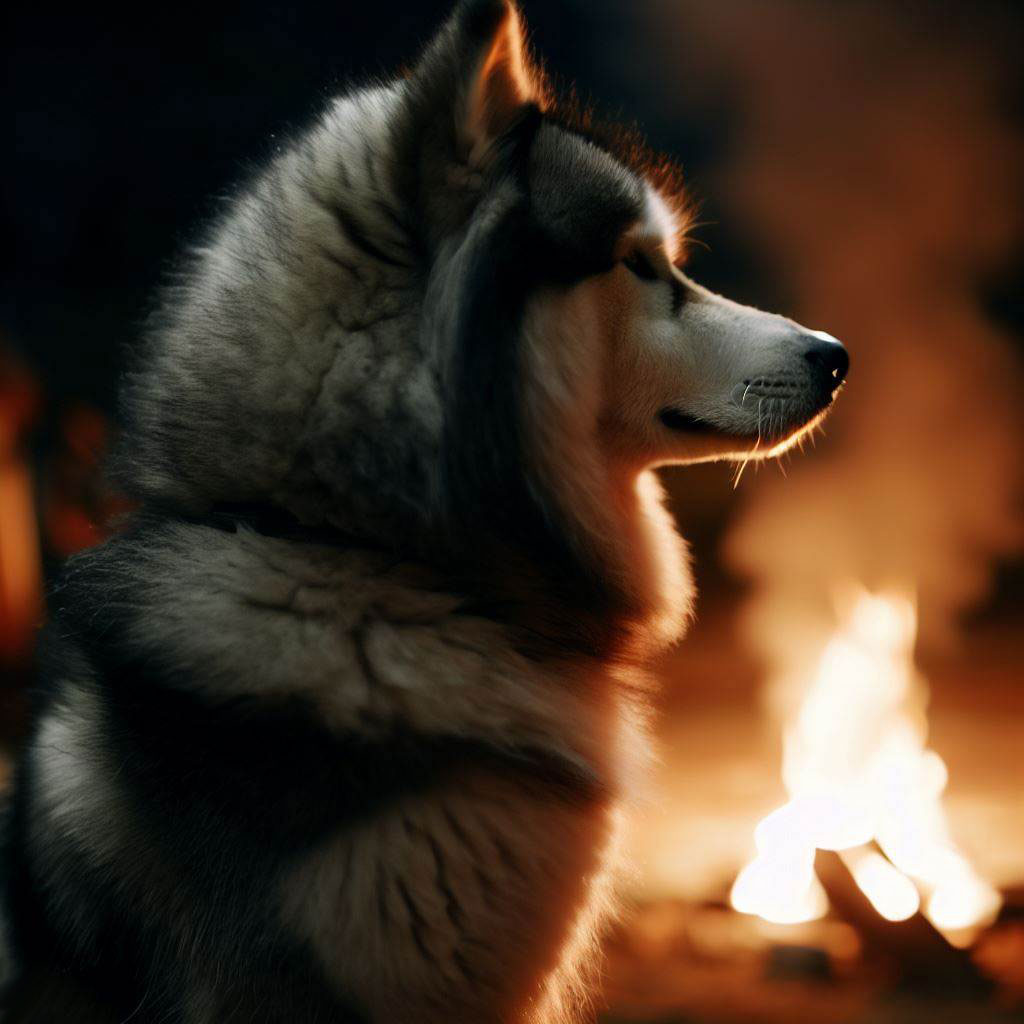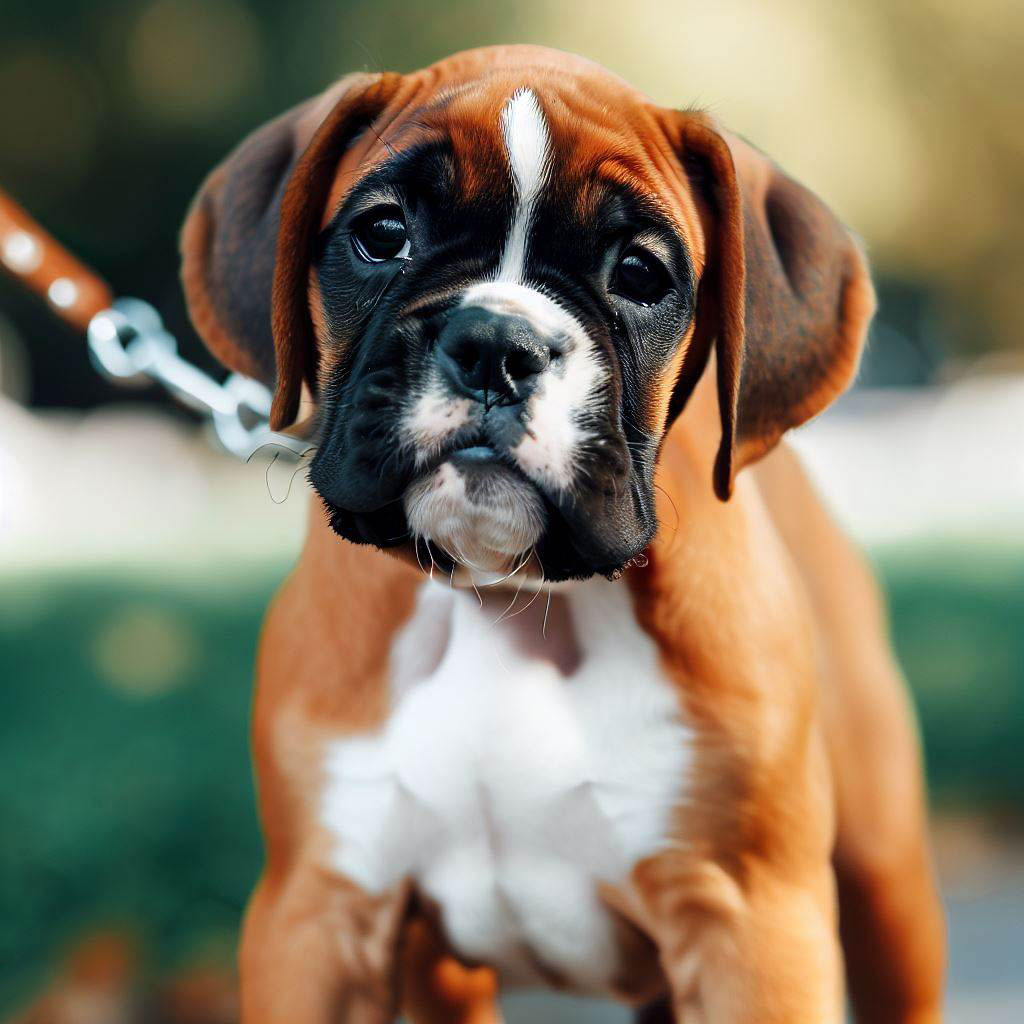Duck Dog Training: Training Hunting Dogs For Ducks. Elevate your hunt with expert tips, tricks and guide you to hunting success.
Table of Contents
Duck Dog Training: The Ultimate Guide
Introduction
Duck season awaits, and with it, the thrills of working in sync with your loyal companion. This synchronization, however, isn’t a mere coincidence but a harmonious dance born from dedicated duck dog training. You’re about to embark on an adventure, not just of hunting, but of bonding, teaching, and learning. The first light of dawn, the chilling air, the sound of wings flapping – these moments are intensified manifold when shared with a trained canine companion.
Brief overview of what duck dog training entails.
Have you ever witnessed the sheer brilliance of a duck dog in action? The way it intuitively reads the skies, dashes into the water with an unstoppable zeal, retrieves the prey with care, and triumphantly returns, eager for the next command? At the heart of this symphony is the dedicated choreography of duck dog training.
Imagine training that’s not just about fetch and retrieve. Rather, it’s about awakening the dog’s inherent instincts, finetuning them, and then integrating them with the nuanced requirements of duck hunting. It’s a blend of basic obedience commands like sit, stay, and come with more complex hunting-specific drills like marking multiple fallen birds, conducting blind retrieves, and remaining steady amidst gunshots. Beyond that, there’s the essential water training, given that a significant part of the activity involves water retrieves.
Importance of training a dog specifically for duck hunting.
But, why this specific training? Why not just bring along any well-behaved dog on a duck hunting trip? Well, let’s delve deeper into that.
Firstly, duck hunting is an art and science combined. Having a partner who doesn’t understand this intricate dance can be, to put it mildly, a tad chaotic. Now, consider the importance of safety. Gunshots, deep water bodies, potential for hypothermia – it’s not a realm for the untrained. Duck dog training ensures your dog is prepared for these conditions, minimizing risks for both of you.
Moreover, ducks aren’t mere tennis balls waiting to be fetched. They can be tricky. They dive, they flutter, they hide. A dog that’s specifically trained for duck hunting knows how to handle such unpredictable behaviors. This training allows the dog to use its natural abilities – a keen sense of smell, remarkable agility, and inherent prey drive – in the most effective and efficient manner. It’s not just about chasing; it’s about chasing right.
Besides the practicality, there’s also the sheer joy and satisfaction derived from watching your dog operate at its full potential. Picture this: the horizon painted in hues of sunrise, the serenity of a still lake disrupted only by the ripples caused by a descending duck, and your dog, poised, focused, and ready. The duck lands, the dog launches, there’s a brief moment of anticipation, and then the joyous return with the prize. This moment, this exhilarating thrill, is the culmination of days, weeks, even months of duck dog training.
Additionally, training amplifies the bond between the hunter and the dog. It’s a collaborative effort. Every command obeyed, every retrieve celebrated, every mistake corrected, draws the two of you closer. It transforms the relationship from mere owner-pet to hunting partners. Such a bond, forged through sweat, challenges, and celebrations, stands as one of the most fulfilling experiences for a duck hunter.
So, as you gear up for the upcoming duck season, recognize that the time and effort you invest in duck dog training are not just for better hunts but for safer, more rewarding, and more memorable experiences. Because, at the end of the day, it’s not just about the ducks; it’s about the stories you create, the memories you cherish, and the legacy you leave behind in the world of duck hunting.

Understanding the Basics of Duck Dog Training
Dive into the realm of duck dog training, and uncover the essence of this craft that dates back centuries. Let’s embark on this journey together, understanding the intricacies, the methods, and the reasons that make this specialized training an essential pursuit for duck hunting enthusiasts like yourself.
What is Duck Dog Training?
You might think you know the answer, but let’s dig a bit deeper. At its core, duck dog training isn’t just about training a dog to retrieve ducks; it’s a delicate ballet, a partnership formed between man and man’s best friend.
Explanation of the concept and its importance in hunting.
Think back to the first time you saw a duck dog in action. The precision, the grace, the undying focus. This spectacle didn’t just happen. It’s the result of rigorous duck dog training.
Here’s the deal: hunting is unpredictable. Ducks don’t follow scripts. Weather changes. The terrain is often challenging. Amidst these variables, a trained dog is your constant. A well-trained dog can mark the fall of multiple birds, can retrieve in the trickiest terrains, and remains undeterred by distractions. But why is this so crucial? Without a trained companion, retrieving downed birds can be extremely challenging, especially if they fall into thick reeds or deep waters. Moreover, any delays or incorrect retrieves can lead to wounded birds escaping, which is neither ethical nor efficient.
Now, it’s not just about the physical act of retrieving. A dog’s keen senses can detect the subtlest signs, whether it’s the silent approach of a flock or the faintest rustle of a hidden bird. Thus, duck dog training harnesses these natural instincts, refining and enhancing them to elevate your hunting experience.
Brief history of using dogs in waterfowl hunting.
Tracing the annals of history, mankind’s partnership with dogs in hunting dates back thousands of years. Initially, these loyal companions were used primarily for protection and herding. However, as humans recognized their potential, dogs started assisting in hunts. Specifically, for waterfowl hunting, certain breeds displayed remarkable adaptability and skills.
Historically, in European regions, hunting was an elite sport. Royalty and nobility employed dogs, especially spaniels and retrievers, to assist in their waterfowl hunts. The wetlands and marshes of Europe were the playgrounds where the first rudiments of duck dog training took shape. The dogs were taught to watch the skies, mark the fall, and retrieve the game without causing any further harm.
As migrations to the New World began, these trained dogs came along, merging their European training techniques with the demands of the diverse American topography. Over time, selective breeding produced dogs naturally adept at waterfowl hunting, and duck dog training methods evolved, incorporating advancements in both technique and equipment.
Why Train Your Dog for Duck Hunting?
At this point, you might wonder, “Isn’t a dog’s natural instinct enough?” The simple answer is no. But let’s delve into the comprehensive reasons behind it.
Enhancing the hunting experience.
Imagine a symphony with missing notes or a painting with faded colors. That’s a duck hunt without a trained dog. With duck dog training, your hunts transform from mere pursuits to masterful performances. Your dog can scout, flush, and retrieve, optimizing your chances of a successful hunt. What’s more, with a trained dog by your side, you can access terrains that might have been challenging or impossible to navigate alone. Dense reeds, deep waters, muddy marshes – no challenge is too great when you have a trained companion.
Moreover, trained dogs ensure ethical hunting. They retrieve game efficiently, reducing the chances of wounded birds escaping and suffering. This ensures that the respect for the game and the sport is maintained at all times.
Building a stronger bond between the hunter and the dog.
Duck dog training is as much about the dog as it is about you. Through the hours spent training, a bond develops, an unspoken understanding. Each command obeyed, each retrieve celebrated, and each hurdle overcome solidifies this partnership.
When you train your dog for duck hunting, you’re not just teaching skills; you’re sharing experiences, creating memories, and building trust. Every early morning drill, every cold water retrieve, every gentle correction – these moments knit together in a tapestry of trust and understanding. Your dog learns to read your signals, anticipate your commands, and in many instances, even think a step ahead. Consequently, in the field, this bond translates into a seamless partnership where both of you move in harmony, each enhancing the other’s strengths and compensating for any weaknesses.
To witness the culmination of duck dog training in action, to see months of hard work translate into that perfect retrieve amidst challenging conditions, is a joy unparalleled. It’s not just about the game; it’s about the journey, the partnership, and the shared love for the sport.
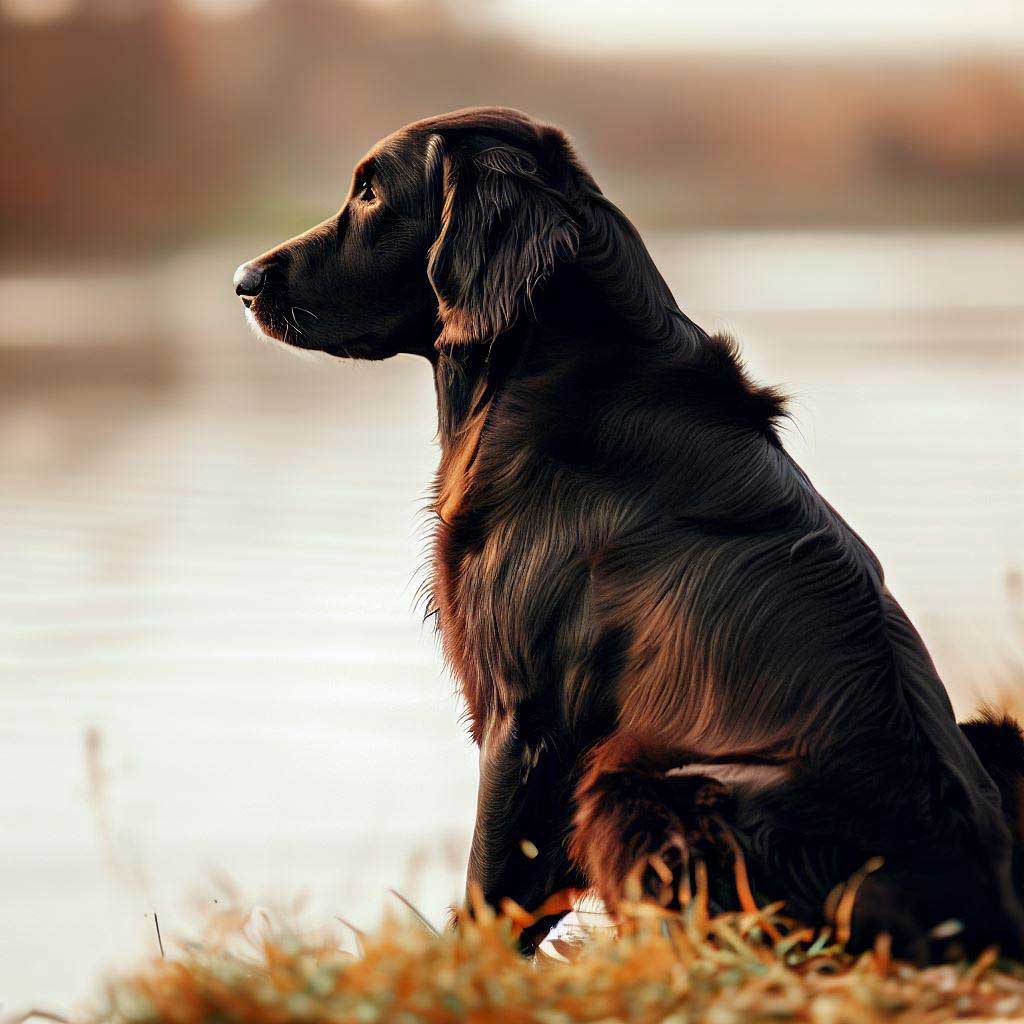
Best Breeds for Duck Dog Training
Journey with me through the canine world as we discover the most adept companions for duck dog training. Much like every athlete isn’t fit for every sport, not all dogs excel in the realm of duck hunting. So, what makes a breed stand out? Let’s dive right in.
Characteristics of an Ideal Duck Dog
Duck hunting is not a walk in the park. It demands agility, resilience, and an instinctual love for water. But that’s not all. When looking for a prime candidate for duck dog training, these are the traits you should seek:
- Water-Repellent Coat: Essential for those cold morning dives. This feature ensures your dog remains relatively dry and doesn’t get chilled.
- Webbed Feet: Nature’s paddles! Ideal for swift swimming, ensuring a quick retrieve.
- Strong Build: Duck hunting demands endurance. A sturdy, athletic build is crucial.
- Keen Senses: Superior sight, smell, and hearing sharpen their edge in locating and retrieving game.
- Trainability: Intelligence combined with a willingness to learn is paramount. You want a breed eager to please and quick to adapt.
- Temperament: A calm, patient demeanor is a must. Frenzied, erratic behaviors are not conducive to a successful hunt.
Now, equipped with this knowledge, let’s delve into the breeds that often check all these boxes.
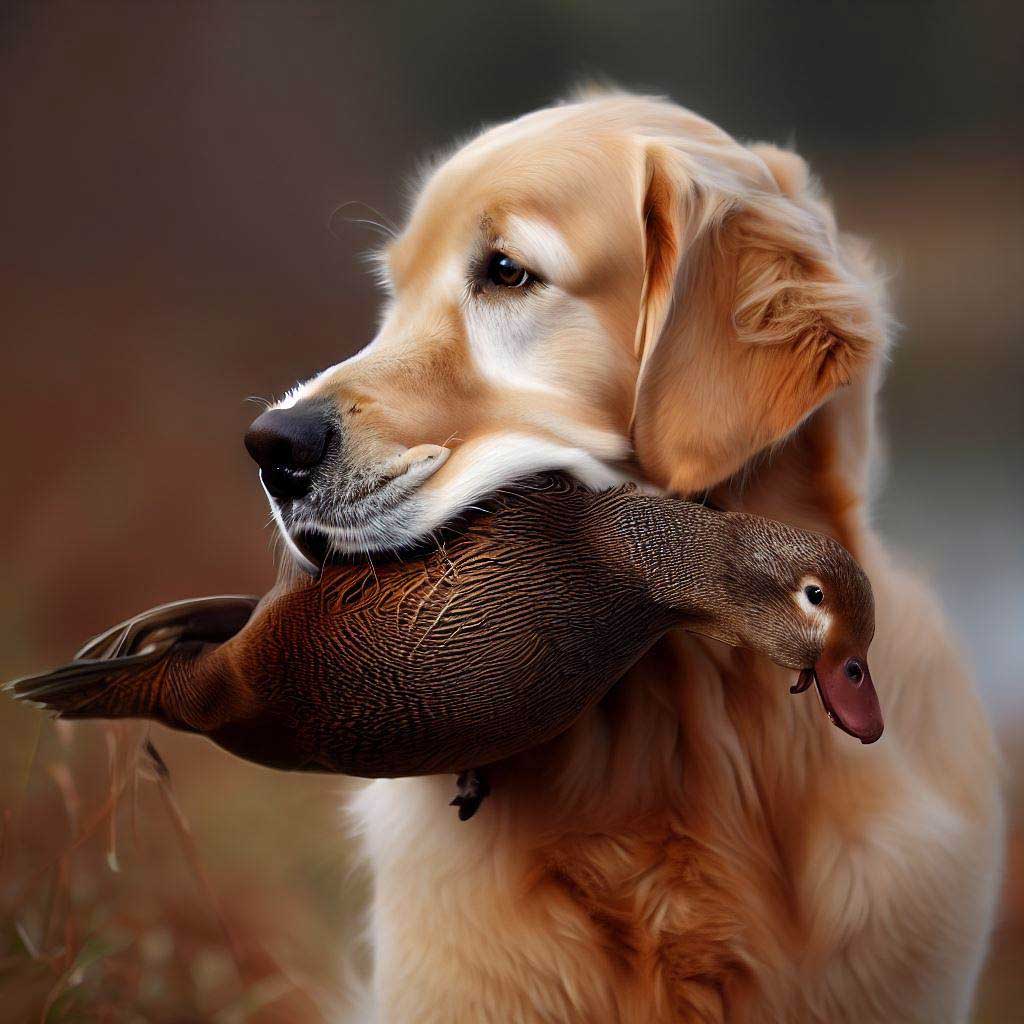
Top 10 Breeds and Their Individual Advantages
Labrador Retriever
- Advantages: Labradors, without doubt, top the list. Their water-resistant coat, enduring stamina, and innate retrieving instinct make them a favorite in the duck dog training circuit. In addition, their amiable disposition and high intelligence make them a joy to train and hunt with. It is said by many that retriever training can be easier to complete for a gun dog than some other breeds.
Golden Retriever
- Advantages: Not just a family favorite, Golden Retrievers shine in the field too. Their keen senses, combined with their natural retrieving abilities, make them formidable duck hunters. Their friendly nature and eagerness to please further accentuate their suitability.
Chesapeake Bay Retriever
- Advantages: Born and bred for waterfowl hunting! The ‘Chessie’ boasts a dense, waterproof coat and a strong build. Their love for water and steadfast determination set them apart. Often, they’re known to display a protective streak, ensuring that the retrieved game remains untouched by others.
German Shorthaired Pointer
- Advantages: A versatile hunting dog, their keen sense of smell and agile physique make them exceptional for both pointing and retrieving. Their adaptability to both land and water, coupled with their deep-rooted hunting instincts, adds them to the top contenders for duck dog training.
Boykin Spaniel
- Advantages: Don’t be deceived by their size! What they lack in stature, they compensate with heart. Originally bred for waterfowl hunting in South Carolina’s swampy terrains, their agility, enthusiasm, and water-loving nature make them an excellent choice.
Poodle (Standard)
- Advantages: Surprise! Beyond the fancy haircuts, standard poodles are old duck retrievers. Their intelligence is legendary, making training a breeze to become a proficient gun dog. Their curly, water-resistant coat provides ample protection during swims.
Nova Scotia Duck Tolling Retriever
- Advantages: With ‘duck’ in the name, they better be good, right? And they are! Bred to ‘toll’ or lure ducks closer for hunters, their playful antics are unique. Their smaller size, intelligence, and agility make them perfect for duck hunting in varied terrains.
Flat-Coated Retriever
- Advantages: Resembling a black or liver-colored Golden Retriever, these dogs are full of energy. They’re incredibly social and boast a long, glossy, water-resistant coat. Their enthusiasm, both in and out of water, combined with their innate retrieving instincts, makes them splendid hunting companions.
English Springer Spaniel
- Advantages: These dogs are compact but robust. Their keen senses, especially smell, are exceptional. Moreover, their nimble size allows them to navigate trickier terrains with ease, and their love for water is evident in their enthusiastic dives.
Irish Water Spaniel
- Advantages: One of the oldest spaniels, they come with tight, water-resistant curls and an unmistakable ‘rat tail.’ These dogs are enthusiastic hunters, with a keen sense of smell and a love for water. Their spirited nature, combined with their retrieving instincts, ensures they are always game for a hunt.
And there you have it – the crème de la crème of the duck dog world. Each breed, with its unique advantages, brings something special to the hunting tableau. However, regardless of the breed, the success of duck dog training lies in understanding the dog’s innate instincts, continuous training, and nurturing the bond between the hunter and the working dog.
You can read more about different breeds here: Different Types of Dog Breeds: Find Your Perfect Dog Breed
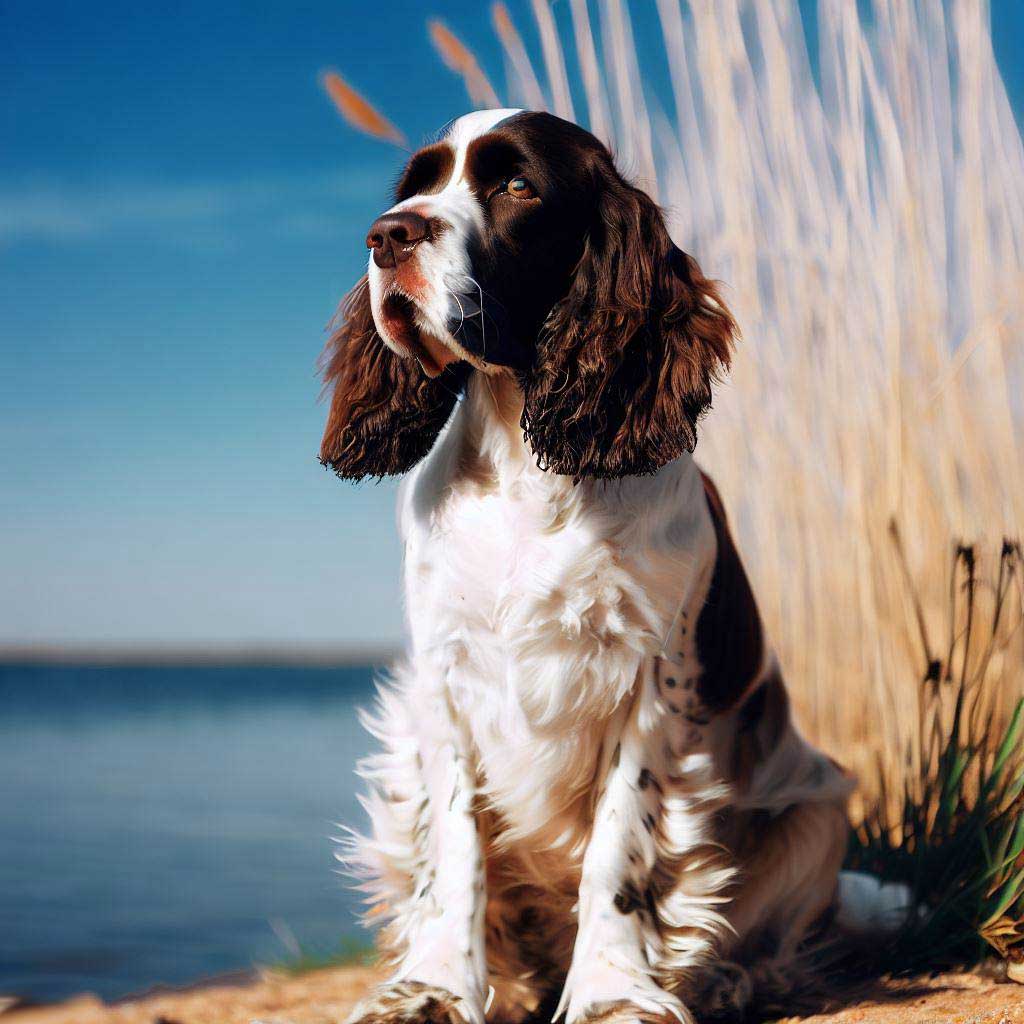
Key Components of Duck Dog Training
Embarking on the journey of dog training for duck hunting is an exciting venture. If you’re gearing up to transform your furry friend into an adept hunting companion, there are some essential training components you shouldn’t overlook. Let’s dive deep into the heart of the process.
1. Obedience Training
The foundation of all forms of dog training, including duck dog training, obedience is where it all begins.
Fundamental commands every duck dog should know:
- Sit: While it might seem rudimentary, a simple sit command is crucial during hunting. When you’re lining up your shot or waiting for the right moment, you’ll need your dog by your side, patient and focused.
- Stay: Just as essential as ‘sit’. Your dog must understand and obey this command to avoid spooking the waterfowl.
- Heel: A dog that knows how to heel will walk beside you without pulling on the leash, making the trek to your hunting spot seamless.
- Come: Vital for safety and control. No matter the distraction, your dog should return to you at this call.
- Down: An invaluable command, especially when you need your dog to remain low and out of sight.
You can read more about fundamental commands here – What Are The 7 Commands To Train A Dog: Teach Them Right.
The importance of mastering basic obedience before introducing hunting skills:
Obedience is the framework upon which all other duck dog training techniques are built. Without a solid grasp of these fundamental commands, more advanced hunting skills will be more challenging to teach. Moreover, mastering basic obedience ensures safety during hunting expeditions, providing you with the ability to control your dog in unpredictable environments.
2. Introduction to Water
Given that duck hunting is all about waterfowl, your dog’s comfort and proficiency in water is paramount.
Gradual introduction techniques:
- Start Young: Puppies are naturally curious. Introduce them to shallow water during playtime. Over time, this fosters a positive association.
- Use Toys: Throw a favorite toy into shallow water, encouraging your dog to retrieve it. This game can gradually move to deeper waters.
- Lead by Example: Sometimes, dogs need a demonstration. Wading into the water yourself can often encourage a hesitant dog to follow.
Training tips for dogs that are hesitant or fearful of water:
- Positive Reinforcement: Always reward any effort to engage with water, be it a single step or a full swim.
- Avoid Force: Never push or throw a dog into water. This can foster fear, making future training endeavors even more challenging.
- Seek Expertise: If you’re struggling, consider seeking a duck dog training expert who can offer specialized techniques tailored to your dog.
3. Retrieval Techniques
The crux of duck hunting lies in the retrieve. Your dog should not only fetch the bird but also ensure it’s delivered to you undamaged.
Teaching the dog to retrieve on command:
- Fetch and Drop: Start with basic fetch games, gradually introducing the command to ‘drop’. This ensures that the dog brings the bird back and releases it without hesitation.
- Use Bumpers: Before moving to real birds, use training bumpers. These tools simulate the weight and feel of a bird without the complexities.
Introducing decoys and their effective usage:
- Familiarity: Lay decoys around your yard, allowing your dog to inspect and familiarize themselves with them.
- Simulate Real Hunts: In water, set up decoys as you would during a hunt, teaching the dog to differentiate between decoys and real birds. This avoids the dog retrieving a decoy instead of the game.
4. Exposure to Gunshot Noise
A gunshot’s loud report can be startling. Proper conditioning ensures your dog doesn’t become gunshot shy, an issue difficult to correct once ingrained.
Safely introducing the dog to the sound of gunshots:
- Distance Matters: Start by firing a shot far away from the dog, ensuring it’s only a distant sound. Over sessions, gradually decrease the distance as the dog becomes accustomed.
- Associate with Positivity: Fire a shot during playtime or before feeding. The dog starts associating the sound with positive experiences.
Ensuring the dog is not gunshot shy:
- Look for Signs: Observe your dog’s reactions. Signs of fear include cowering, tail tucking, or trying to flee. If noticed, increase the distance and go slower in your approach.
- Never Force Exposure: A forced introduction to gunshots can cause permanent aversion.
5. Fieldwork and Drills
Practical experience is where the real learning happens. Think of it as the final exam of your duck dog training course.
Setting up realistic hunting scenarios:
- Use Natural Settings: Train in environments similar to real hunting grounds. Marshes, lakes, or ponds are ideal.
- Introduce Scent: Use bird scent to make drills more realistic, teaching your dog to track and locate game.
Regular practice to improve the dog’s skills:
- Consistency is Key: Like all training, consistency ensures that skills are not only learned but also retained.
- Involve Other Hunters: Collaborative sessions with fellow hunters can introduce your dog to the chaos of a real hunting environment.
The road to mastering duck dog training is lengthy but rewarding. With diligence, patience, and proper training techniques, your dog will soon be an invaluable asset on your hunting trips.
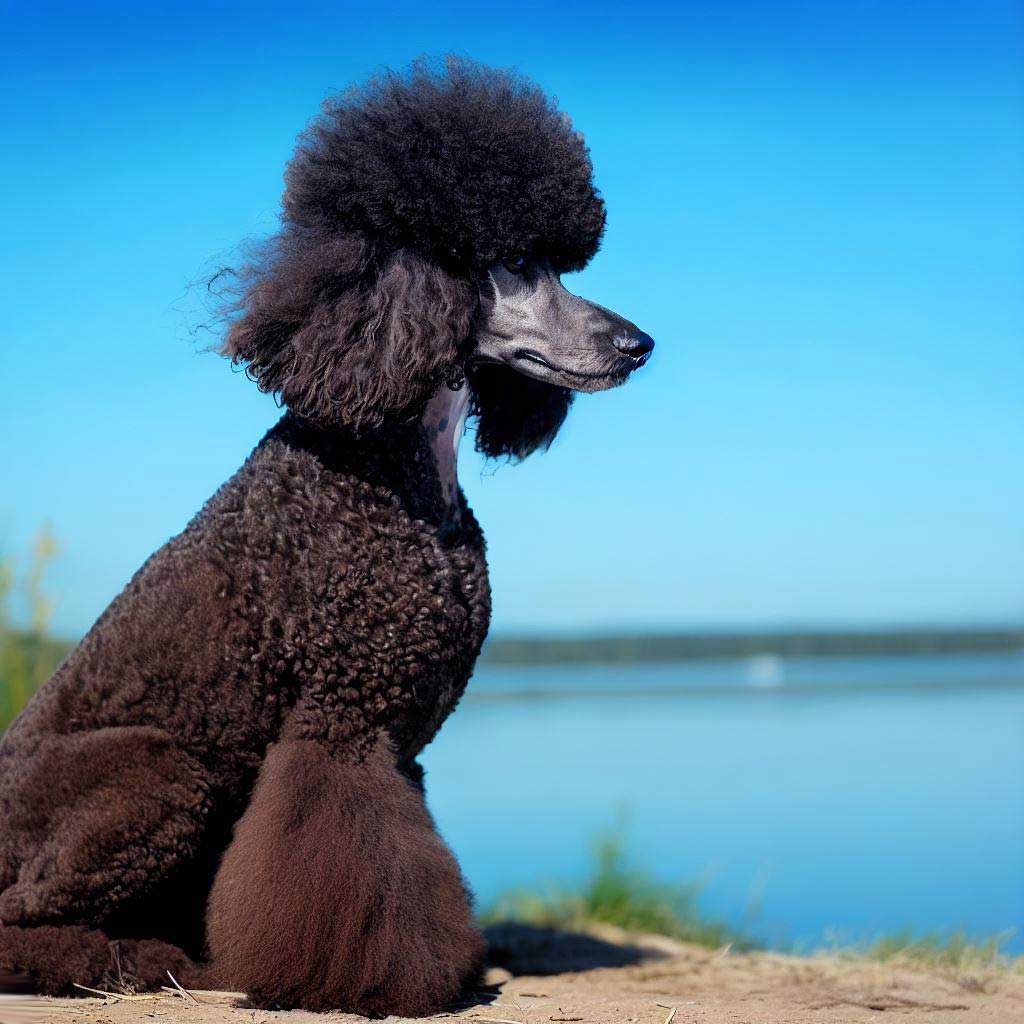
Benefits, Pros, and Cons of Duck Dog Training
Engaging in any dog training isn’t just a hobby; it’s an immersive experience that can reshape the dynamics of your hunting sessions and the relationship with your canine companion. But like all training regimens, it has its soaring highs and a few hurdles. Let’s unravel them.
Enhancing Hunting Success Rate
Duck dog training is often synonymous with a more fruitful hunting experience. But how exactly does this training translate into a better yield?
- Efficient Retrieval: A well-trained dog can fetch the game swiftly, ensuring that injured birds don’t escape. Without the aid of a dog, many birds that are shot and injured manage to escape, leading to wastage.
- Scent and Detection: Dogs have an extraordinary sense of smell. Their ability to detect and alert the hunter to the presence of ducks or other waterfowl, even those that are well-hidden, is remarkable. This provides hunters with more opportunities to aim and shoot.
- Reduced Disturbance: A trained dog knows when to stay still and when to act. Such discipline ensures that birds aren’t startled prematurely, giving the hunter the upper hand in dictating the course of the hunt.
Moreover, the sheer joy of seeing your dog in action, understanding commands, and being an integral part of the hunt is a success in itself.
Increased Safety During Hunting Trips
Safety is paramount. Hunting terrains can be unpredictable, and the environment can throw a curveball when least expected. Here’s where duck dog training shines:
- Quick Alerts: Dogs can often sense dangers well before humans. Whether it’s an approaching animal, a hidden pit in marshy lands, or even other hunters, a trained dog can alert you promptly.
- Weapon Safety: A dog trained for hunting understands the importance of staying clear from the line of fire. This ensures that there are no accidental mishaps when you take your shot.
- Assistance in Rough Terrains: Marshes, swamps, and thickets are tricky. A dog can help you navigate, assist in carrying gear, or even help pull you out if you’re stuck.
Strengthened Bond Between Dog and Owner
The journey of duck dog training isn’t just about hunting. It’s a partnership, an understanding, a dance of two souls in perfect harmony.
- Shared Experiences: Every training session, every hunt, every success, and even failures are shared experiences. These moments solidify the bond, making it unbreakable.
- Mutual Respect: As you train together, there’s a growing sense of mutual respect. The dog learns to respect your commands, and in turn, you respect the dog’s instincts and abilities.
- Communication: Over time, you’ll find that words become unnecessary. A glance, a gesture, a slight change in body language, and both of you know what needs to be done. This non-verbal communication is a testament to the deep bond forged through duck dog training.
Potential Drawbacks and Considerations
While the merits of duck dog training are numerous, it’s essential to understand its challenges too.
- Time-Consuming: Proper training doesn’t happen overnight. It demands patience, time, and consistent effort. Not everyone has the luxury of time or patience.
- Cost: From training gear, decoys, to possibly hiring a professional trainer, the costs can add up. It’s an investment, and one must be prepared for it.
- Emotional Challenges: Training can sometimes be frustrating. There might be days when the dog doesn’t respond, or unexpected challenges crop up. It’s a test of resilience and emotional strength.
- Potential Risks: Despite all precautions, hunting has its risks. Dogs can get injured, fall ill due to exposure, or even get lost. It’s a stark reality every hunter-trainer must be aware of.
- Training Variability: Not all dogs take to hunting naturally. Some might be scared of gunshots; others might not have the retrieval instinct. It’s crucial to understand that not every dog is cut out for hunting, and that’s okay.
In the grand tapestry of hunting, training a duck dog is a vibrant thread. It adds depth, dimension, and elevates the experience to something beyond just a sport. It becomes a partnership, a shared journey of two beings in the vast wilderness. And like all journeys, it has its moments of elation and challenges.
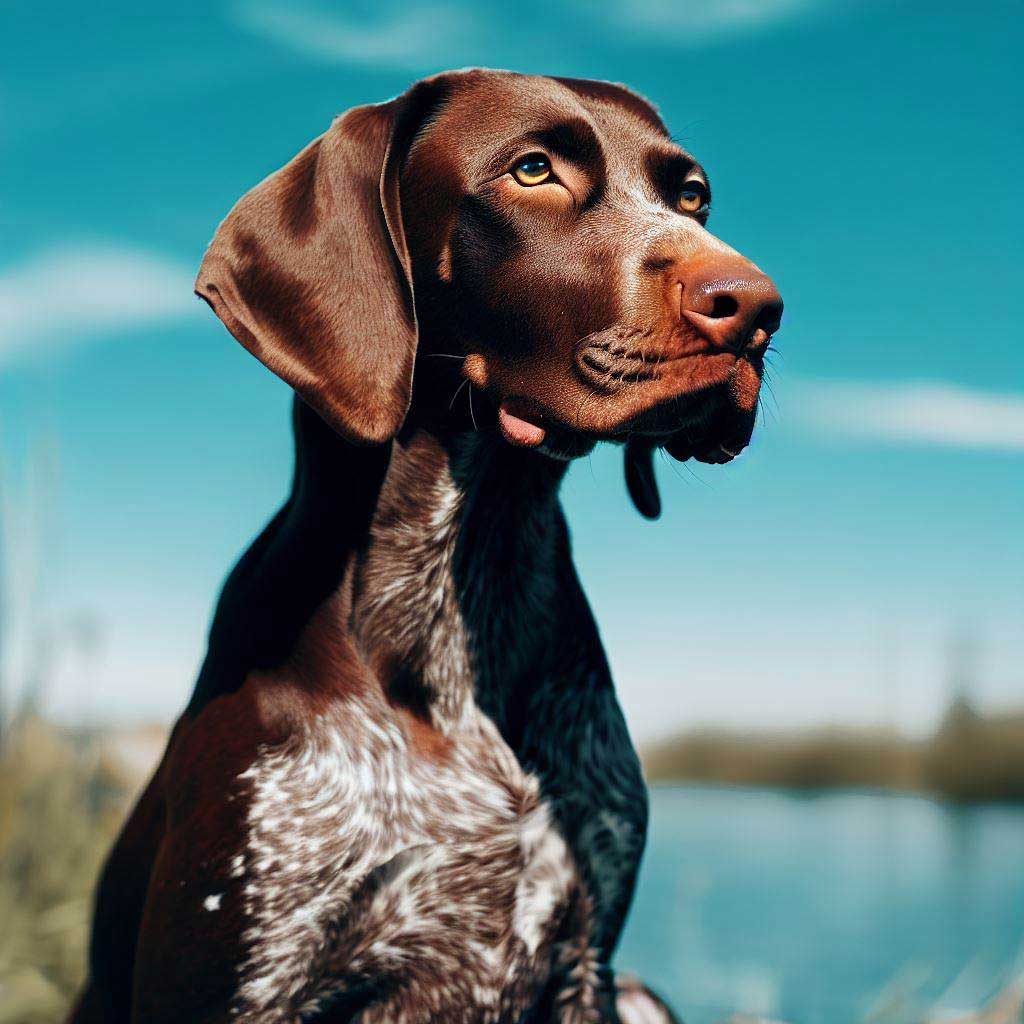
Cost Considerations
Diving into the world of duck dog training? Prepare to navigate a fascinating yet intricate labyrinth of choices, all linked to your pocket. But fret not. We’re about to untangle the cost web, providing clarity on every twist and turn.
Hiring a Professional vs. DIY Training
When charting the waters of duck dog training, the first whirlpool many encounter is the decision between hiring a seasoned professional or embracing the thrill of Do-It-Yourself (DIY) training.
- Professional Guidance: Opting for an expert often comes with a hefty price tag. Prices can range anywhere from $500 to $2,500 or more, depending on the trainer’s renown and the program’s depth. However, this investment guarantees a structured approach, optimized methodologies, and, often, quicker results. Moreover, professionals have seen it all; they can tailor training, ensuring that individual canine quirks are effectively addressed.
- DIY Training: On the other hand, embarking on a DIY journey, while budget-friendly, requires dedication. The costs are significantly reduced, primarily restricted to resources and tools. However, remember, the absence of professional fees doesn’t equate to ‘free.’ Time, patience, and sometimes, trial and error are the currencies here.
Training your dog, irrespective of their age, is like weaving a tapestry. Each thread represents patience, effort, and tons of love. The resulting masterpiece? A well-trained canine companion that shares an unbreakable bond with you.
However, weaving can be complex, and you might need guidance. The digital age offers just that, with online dog training courses leading the way. For those seeking the creme de la creme, “Best Online Dog Training Courses: Any Dog Will Love” is a beacon, showcasing 15 impressive courses with an in-depth look at the top three to perfect your craft.
Investing in Training Equipment and Tools
A ship is only as good as its captain and its tools. Similarly, the success of duck dog training is intertwined with the quality of equipment you deploy.
- Decoys and Dummies: Essential for retrieval training, these can range from $20 to $200, depending on realism, material, and brand.
- Whistles and Calls: Communication tools are vital. A good whistle or call can be between $5 to $50.
- Leashes and Harnesses: For control during training, expect to shell out between $10 to $100, based on durability and design.
- Training Collars: A sensitive topic, but when used correctly, they can be beneficial. Prices fluctuate between $50 to $300.
While initial investments might seem steep, quality tools often last a lifetime, making them invaluable assets in your training toolkit.
Ongoing Costs such as Maintenance and Advanced Training
Training doesn’t culminate with mastering the basics; it’s an ongoing process. As your dog advances, so do the costs.
- Maintenance Sessions: Occasionally, reinforcing training might be necessary, especially if you’ve opted for professional guidance. Such sessions can be between $50 to $200 each.
- Advanced Training: Specialized skills, like multi-retrievals or blind retrieves, can be added feathers in your dog’s cap. These sessions can command prices upward of $500.
- Gear Maintenance and Replacement: Wear and tear are inevitable. Allocating a yearly budget of $100 to $200 for replacements is wise.

Time Investment
Beyond monetary investments, duck dog training demands another equally precious resource: time. But how much exactly? Let’s decode.
Expected Duration of Training from Start to Finish
- Puppy Basics: If starting young, basic obedience and socialization are the first steps. Spanning 8 to 16 weeks, this phase lays the foundation.
- Introductory Training: Introducing your pup to water, decoys, and basic commands can take another 4 to 8 weeks.
- Advanced Training: The meat of duck dog training—retrieval techniques, gunshot introduction, fieldwork—demands a whopping 5 to 8 months. Sometimes even more.
In essence, from a raw, untrained pup to a competent hunting partner, you’re looking at 8 to 14 months of consistent effort. But remember, every dog is unique. These timelines are mere blueprints; individual milestones might vary.
The Importance of Consistent and Regular Training Sessions
Consistency is the glue that holds duck dog training together. A sporadic approach is a recipe for confusion, leading to longer training durations.
- Regular Routines: Dogs thrive on routines. Regular sessions, even if shorter, yield better results than erratic, longer ones.
- Reinforcement: Consistent training ensures that learned behaviors are reinforced, reducing the chances of regression.
- Building Trust: Regular interactions bolster trust, a cornerstone for effective training.
Embarking on the duck dog training voyage is no small feat. It’s an expedition filled with investments, both monetary and time-bound. But as every seasoned hunter knows, when the fog lifts, revealing a well-trained dog, synchronized in every move, every penny and every second prove their worth manifold. For some training assistance, have a read of our article called “The 5 Golden Rules Of Dog Training“.
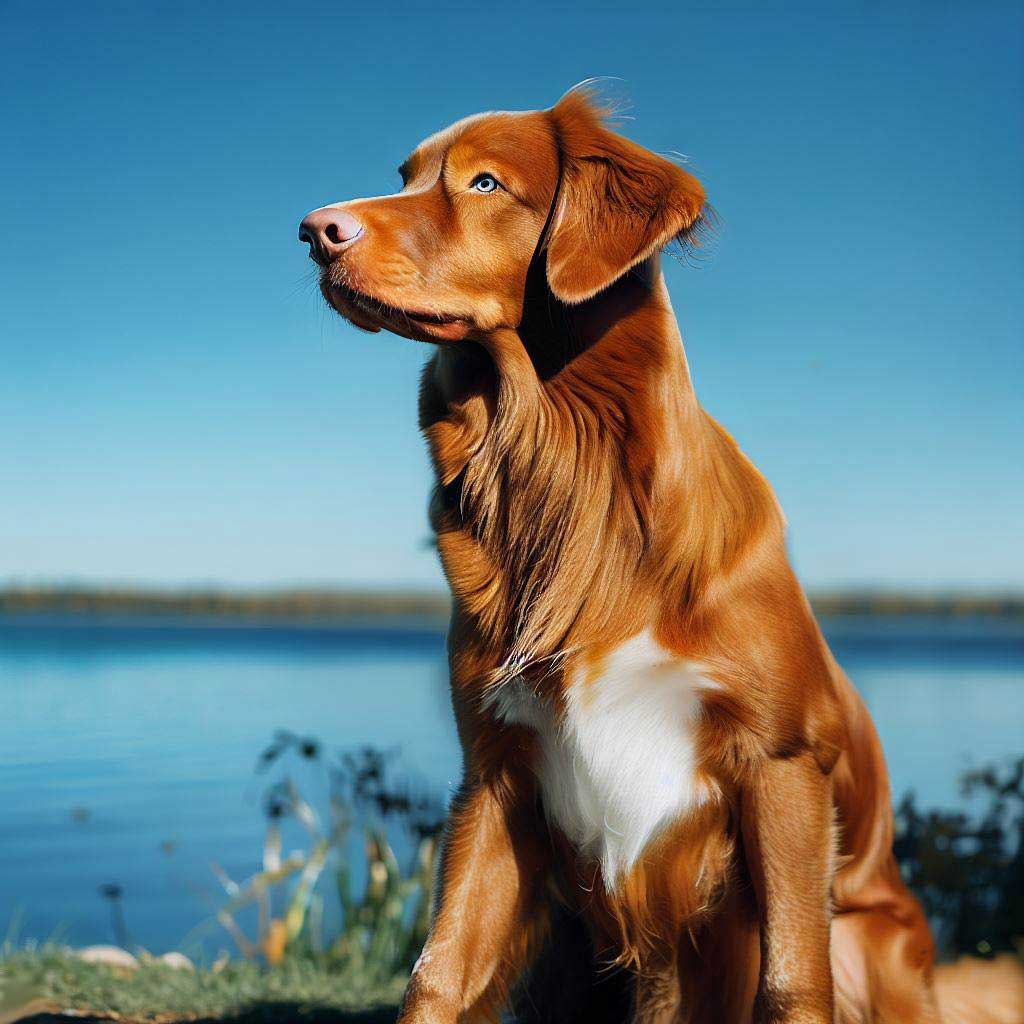
Top 10 Tips and Tricks for Duck Dog Training
As a seasoned aficionado in duck dog training, the tapestry of experience has revealed a rich repository of insights. So, if you’re keen on cultivating a top-tier hunting companion, buckle up. Here’s a distilled compilation of the crème de la crème of advice:
1. Start Early: The Importance of Beginning Training in Puppyhood
The saying, “The early bird catches the worm,” holds profound resonance in the realm of duck dog training. Initiating training in puppyhood isn’t just a tactical move; it’s a strategic masterstroke. Young pups are pliable, receptive, and, most crucially, free from entrenched habits. Thus, shaping behaviors and instilling foundational hunting instincts becomes a breezy affair. The canvas of their impressionable minds absorbs instructions effortlessly, paving the way for advanced training down the road. If you’re new to puppy training, check out our helpful article called “Dog Training Tips for Beginners: Train Your Puppy Dog Like a Pro“
2. Consistency is Key: Why Regular Training Sessions Matter
Visualize duck dog training as weaving a rich, intricate tapestry. Each training session intertwines a fresh thread, fortifying the fabric. By ensuring regular and consistent training, you fortify this metaphorical tapestry. Consistency not only reinforces learned behaviors but also forges an unwavering bond of trust between the handler and the dog. This bond, once cemented, becomes the bedrock upon which advanced hunting skills are constructed.
3. Use Positive Reinforcement
Rewards and encouragement are the lifeblood of duck dog training. The effervescence of a dog’s spirit, when buoyed by positive reinforcement, knows no bounds. Treats, praises, or simple affectionate gestures go a long way in shaping desired behaviors. By focusing on what your dog does right and rewarding it, you not only bolster the learning curve but also foster a zest for training in the canine heart.
4. Gradual Exposure to Different Hunting Environments
A chef doesn’t just toss all ingredients into a pot at once. There’s a methodical layering involved. Similarly, exposing your dog to the vast tapestry of hunting environments should be a calibrated exercise. Start with controlled environments, gradually ratcheting up the complexity. This layered exposure not only amplifies adaptability but also ensures that the dog doesn’t get overwhelmed. As the vistas of terrains expand, your dog’s confidence will soar, making it adept at navigating diverse hunting scenarios.
5. Incorporate Play into Training Sessions
Who claimed that duck dog training must be an austere, solemn affair? Infusing play into training is akin to adding a dollop of whipped cream to a dessert—it enhances the experience manifold. It breaks the monotony, fuels enthusiasm, and, most crucially, embeds learning in a cloak of fun. Toss a ball, indulge in a tug-of-war, or just let your dog frolic around. These playful interludes will rejuvenate both the trainer and the trainee, making subsequent sessions more productive.
6. Seek Guidance from Experienced Trainers or Join Hunting Dog Clubs
No one’s born with the almanac of duck dog training etched in their minds. It’s a journey, and seeking guidance can illuminate many a dark alley. Engaging with experienced trainers or becoming part of hunting dog clubs can be transformative. Such associations not only offer a treasure trove of insights but also provide platforms for real-world practice. Moreover, witnessing other dogs in action can serve as live tutorials, speeding up the learning curve.
7. Regularly Update and Refresh Training Drills
Monotony is the nemesis of growth. In the constantly evolving universe of duck dog training, stagnation is not an option. Regularly refreshing training drills ensures that the dog remains engaged, curious, and, most importantly, challenged. It’s akin to upgrading software; you’re fine-tuning the dog’s skills, keeping them sharp, updated, and in sync with the latest hunting nuances.
8. Invest in High-Quality Training Tools
Quality tools aren’t just a luxury; they’re a necessity in the sophisticated ballet of duck dog training. Be it decoys, whistles, or training collars, investing in top-tier equipment amplifies efficiency. Moreover, quality tools often come with the assurance of durability, ensuring that the rhythm of training remains uninterrupted.
9. Address Unwanted Behaviors Immediately
In the symphony of duck dog training, discordant notes, if left unaddressed, can mar the entire melody. Whenever unwanted behaviors manifest, address them instantaneously. Immediate corrections ensure that the dog associates the negative behavior with the reprimand, ensuring quicker rectifications.
10. Keep Post-Hunt Routines to Reinforce Training
The crescendo of every training session should be a well-defined post-hunt routine. These routines, when consistently followed, reinforce training, ensuring that the dog associates the hunt’s culmination with specific behaviors. Over time, these routines become second nature, embedding a seamless flow to the hunting adventure.
Venturing into the labyrinth of duck dog training can seem daunting. But with these distilled pearls of wisdom, the journey promises to be not just enlightening but exhilarating.
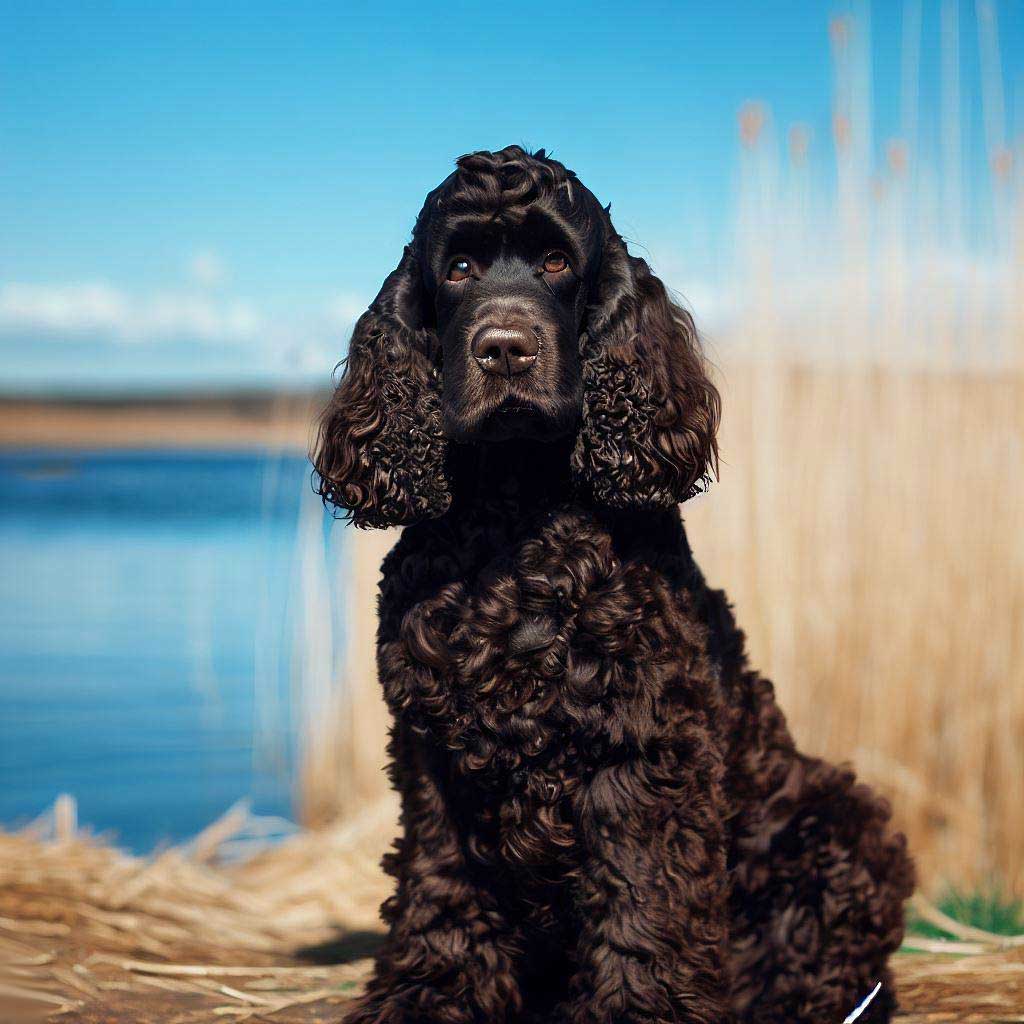
Conclusion: Duck Dog Training
Navigating the vast expanse of duck dog training can, at times, feel like traversing a labyrinth. Yet, as you weave through the maze, the tapestry of experiences, both challenging and rewarding, unfolds, revealing a narrative that’s both enriching and transformational.
The Rewards of Training a Reliable and Skilled Duck Dog
Think back to the first brushstroke you made on the canvas of your dog’s training journey. From that initial touch, you’ve now painted a vivid portrait, resplendent with skills, trust, and mutual respect. But what truly stands out in this masterpiece? The rewards.
Each time your dog follows a command, retrieves a duck with precision, or merely looks up to you with those trusting eyes, the sense of accomplishment is palpable. It’s not just about the technical prowess your canine companion exhibits; it’s about the bond you’ve forged. Through the peaks and valleys of duck dog training, you’ve not just sculpted a proficient hunting companion but also nurtured a bond built on trust, understanding, and mutual respect.
Moreover, a well-trained duck dog exponentially elevates the hunting experience. Gone are the days of missed opportunities or chaotic hunting episodes. Instead, you have by your side a reliable partner, tuned in to your every command, ready to execute with finesse. The synchronicity of your movements, the unspoken understanding, the seamless flow of the hunt—all these rewards make every drop of sweat invested in training worth its weight in gold.
Encouragement for Continued Training and Development
Yet, like any profound journey, duck dog training isn’t a destination but an ever-evolving process. If you’ve reached a significant milestone, take a moment to bask in the glory, but then, set your sights on new horizons. Why? Because the realm of training offers limitless potential.
Continued training ensures that skills remain sharp, adaptable, and updated. Think of it as the software updates for gadgets; periodic refreshers are imperative to keep the system running smoothly. More so, with evolving hunting techniques, environmental dynamics, and the innate curiosity of dogs, there’s always something new to explore, learn, and impart.
Moreover, continued development is not just about honing hunting skills. It’s about deepening the bond, understanding each nuance of your dog’s behavior, and forging an even stronger partnership. It’s about the joy of seeing your dog evolve, adapt, and thrive.
So, while the tapestry of duck dog training you’ve woven thus far is undoubtedly mesmerizing, know that there’s still ample canvas left. New patterns to explore, fresh hues to add, and countless memories to imprint. Dive back in with renewed vigor, for the journey promises to be as rewarding, if not more, than the destination.
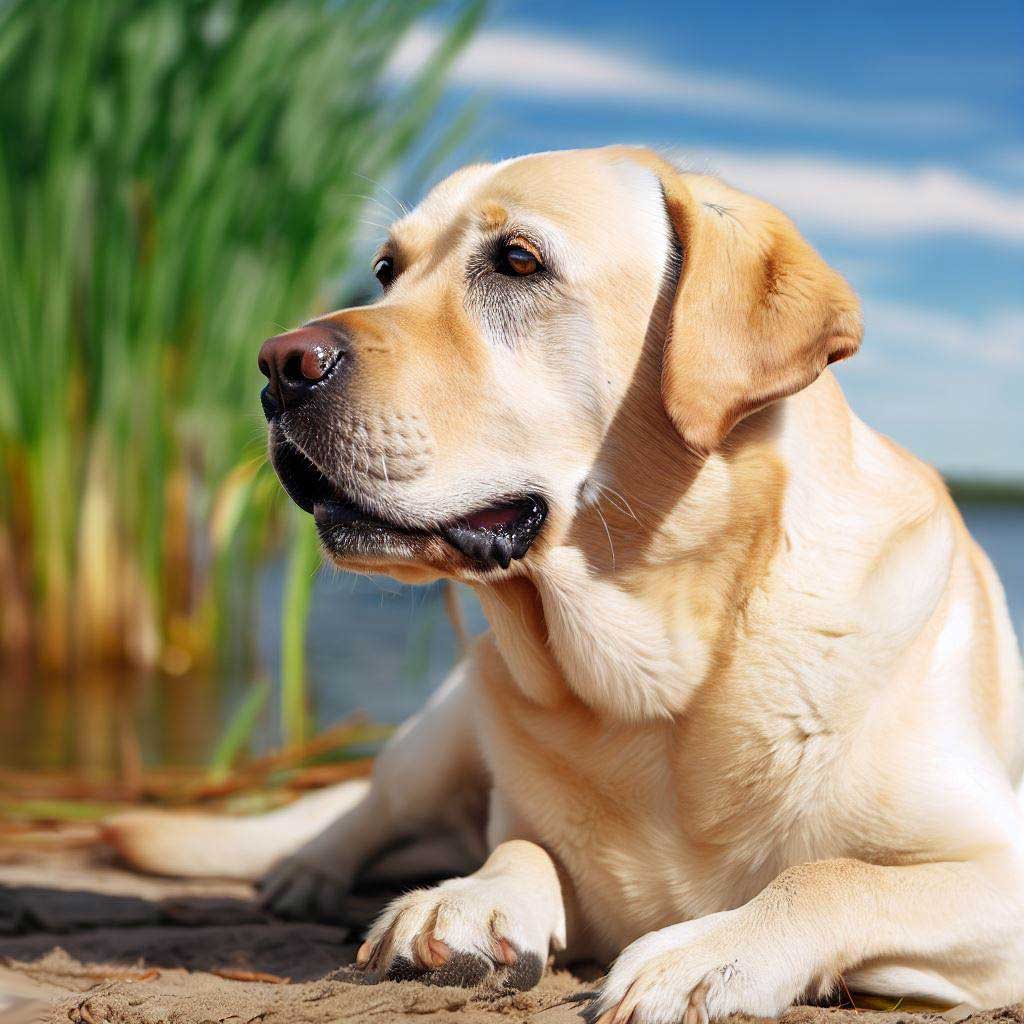
FAQ: Duck Dog Training
What age should you start training a duck dog?
Begin your hunting dog training as early as possible. So ideally, introducing basic obedience commands when they are puppies, around 8 to 12 weeks old, sets the foundation. Hence, by the time they reach six months, your dog is primed for more advanced facets of duck dog training.
How long does it typically take to fully train a duck dog?
On average, it takes about a year to get a dog field-ready. However, remember, every dog is unique, so factors like breed, temperament, obedience level, and consistency in training can influence the timeline.
Can older dogs be trained for duck hunting?
Absolutely. While it’s beneficial to start young, older dogs can still adapt to become adept hunting dogs. However, the key lies in patience and understanding the dog’s pace, and obedience ability especially if they’re learning new skills.
Are certain breeds naturally better at duck hunting than others?
Yes, breeds such as Labrador Retrievers, Golden Retrievers, and Chesapeake Bay Retrievers have innate waterfowling skills. Their physique, coat, and instincts make them more adept for the job. Nonetheless, passion and persistence can train many breeds to become efficient duck dogs.
What if my dog is afraid of water?
Overcoming this fear involves gradual exposure. Hence start with shallow waters and play-based activities. And remember as dog owners, positive reinforcement also plays a pivotal role. As a result, over time, most dogs overcome their apprehension and begin to enjoy water.
How often should I train my duck dog?
Consistency is pivotal so keep training sessions to about 4-5 times a week, even if they’re short, they reinforce learning. However, ensure that these sessions are engaging to prevent fatigue and disinterest.
Do I need to use live ducks for training?
Not necessarily. While live ducks offer a realistic training scenario, trainers can begin with dummies or dead ducks. Then as the dog progresses, occasional live duck training can simulate real hunting conditions.
What equipment is essential for duck dog training?
Training dummies, a whistle, a training collar, and a retrieving leash are foundational for this type of dog training. Then as you advance, consider acquiring decoys, scent products, and launchers to elevate the training experience.
Can I train a duck dog if I live in the city?
While challenging, it’s feasible because most urban areas offer parks and water bodies that you can use. Utilize these for basic training and for more specialized training, you might need to travel to more conducive locations occasionally.
Is professional duck dog training worth the cost?
Professional trainers, with their vast experience, can provide a structured training regime and if you’re new to duck hunting or feel overwhelmed, investing in professional guidance can be invaluable. However, for those with experience, DIY training, while time-consuming, can also be effective.
How do you train a dog to get a duck?
Begin with basic retrieves using dummies then gradually introduce the scent, followed by dead ducks, ensuring each command is obeyed. After that, progress to water retrieves and eventually integrate controlled live duck scenarios, but remember, patience is vital.
What is the easiest dog to train for duck hunting?
Labrador Retrievers often top this list. Due to their eagerness to please, coupled with their natural affinity for water and retrieving, makes the training process smoother.
What is force fetch training?
Force fetch training ensures that the dog fetches every item on command and delivers it to hand without dropping or damaging. It involves teaching the dog to hold, fetch, and release on command, often using controlled pressure techniques.
Can you train a dog for waterfowl and upland?
Yes, many versatile breeds excel in both terrains and the key lies in distinguishing training sessions. Consistent reinforcement ensures that the dog doesn’t mix commands when transitioning between waterfowl and upland hunting.
What is the first step in training a duck dog?
Lay the foundation with obedience training and commands like “sit,” “stay,” “come,” and “heel” are paramount. This step ensures that your dog listens and obeys amidst the adrenaline rush of a hunt. A good startin gplace is our article called “What Are The 7 Commands To Train A Dog: Teach Them Right.”
Can you train a duck dog at home?
Certainly! While specialized training might require open fields and water bodies, basic duck dog training commands can be imparted at home. Your backyard can serve as an initial training ground, progressing to larger spaces as the dog advances.
How are duck hunting dogs trained?
The process is sequential so begin with basic obedience traning, then progress to basic retrieves, introduce water and scents, and then finally simulate hunting scenarios using decoys and live ducks. Consistency, patience, and positive reinforcement are cornerstones of the training process.
When should I start training my dog for duck hunting?
As highlighted, kickstart obedience training during puppyhood at around 8-12 weeks old. And by six months, they’re usually ready to delve deeper into duck dog training.
Can you use frozen ducks for dog training?
Absolutely, using frozen ducks in duck dog training can be an effective method, especially when live birds aren’t readily available. Frozen ducks offer a realistic weight and feel, helping to familiarize your dog with the sensation of retrieving waterfowl. However, remember to thaw the duck slightly before training to prevent potential injuries to your dog’s mouth or teeth. Alternating between frozen ducks and other training tools can create a well-rounded training experience.
What are the best duck dog commands?
Duck dog commands are vital for effective waterfowl hunting. Some essential commands include “Sit” or “Stay,” ensuring your dog remains steady and doesn’t break or scare off birds prematurely. “Here” or “Come” facilitates swift returns, while “Heel” keeps them by your side. “Fetch” or “Mark” are crucial for pinpointing and retrieving ducks. For advanced handlers, commands like “Over” can direct a dog laterally, and “Back” sends them in a straight line, refining their retrieval paths.
How effective is a duck training dummy?
A duck training dummy, often made of canvas or rubber, are exceptionally effective in initial retriever training stages. They are durable, float on water, and can be easily spotted, making them an excellent tool for teaching dogs to mark fallen birds. Moreover, their consistent size and weight help build a dog’s confidence in fetching before transitioning to actual waterfowl. To amplify their effectiveness, some trainers even add scent to these dummies, mimicking the real hunting experience more closely.
Can you use treat training on duck hunting dogs?
Certainly, treat training can be a beneficial reinforcement method for duck hunting dogs, especially during the early stages. Positive reinforcement, like providing treats, encourages desired behaviors, solidifying commands more efficiently. However, it’s essential to strike a balance. In actual hunting scenarios, the retrieval and praise from the handler become the reward. So, while treats can be useful in the foundational phases, transitioning to praise-based rewards over time can simulate real hunting conditions better.
What’s the best duck hunting dog breed for waterfowl hunting?
While several breeds excel in waterfowl hunting, Labrador Retrievers stand out as a popular favorite. Their strong swimming abilities, paired with a natural instinct to retrieve, make them exceptional duck dogs. Labs also have a water-resistant coat and webbed feet, perfect for aquatic environments. However, other breeds like the Chesapeake Bay Retriever, Golden Retriever, and German Shorthaired Pointer also shine in the field, each bringing unique strengths to waterfowl hunting.
Can you use a scented duck dummy in retriever training?
Yes, using a scented duck dummy can elevate your retriever training to a more realistic level. By introducing the scent, you’re enhancing your dog’s tracking and locating abilities, closely mirroring an actual hunting scenario. These dummies, combined with genuine waterfowl scent, create a multi-sensory training experience. As your dog gets familiarized with the scent, it prepares them for the real deal, making the transition from training to actual hunting smoother and more instinctive.
For further reading have a look at these sites:
- Arctic Bird Dog Association – arcticbirddog.org
- North American Versatile Hunting Dog Association – www.navhda.org
- PACT Dogs Ltd UK – www.pact-dogs.com
